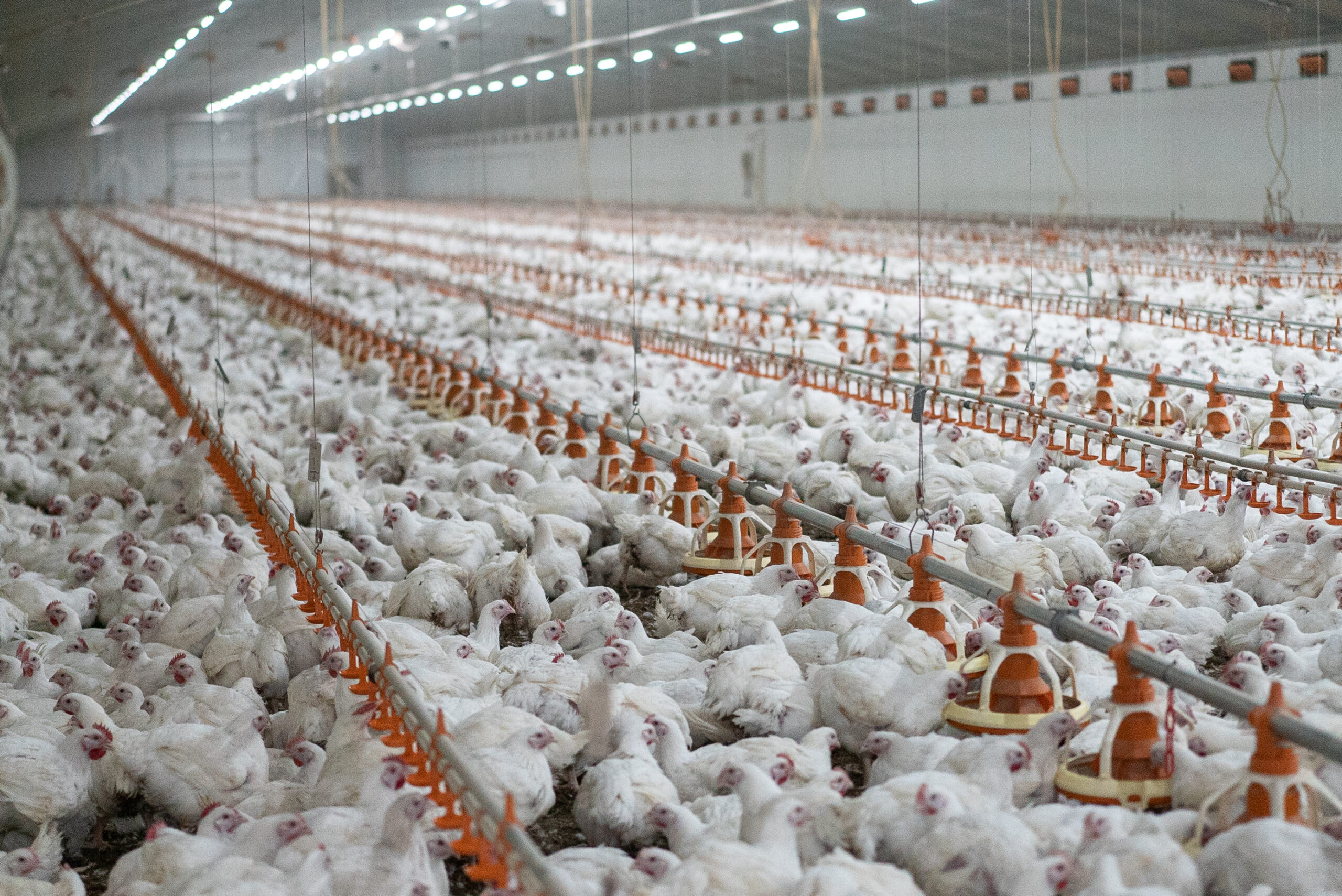On March 1, 2024, the UN Environment Assembly at its sixth session (UNEA-6) adopted 15 resolutions important for the future of animals, humans, and the planet. Over 190 countries, with most represented by their environment ministers, agreed to these by consensus.
The adoption of the UNEA-6 resolutions followed gruelling negotiations by Permanent Representatives to UNEP during its Open-Ended Committee (OECPR) meeting the week before, which continued well into the UNEA week. From the early morning hours to late evenings, the OECPR discussed in detail and at length the language of the 19 draft resolutions that the UN Member States had proposed.
The theme of UNEA-6 was “Effective, inclusive and sustainable multilateral actions to tackle climate change, biodiversity loss and pollution”. However, the extent to which these resolutions will drive effective, inclusive and sustainable change remains to be seen. In the meantime, there are three UNEA-6 resolutions we believe provide animal advocates entry points to improve animal welfare worldwide, across sectors.
Entry points for animal advocacy
1. Effective and inclusive solutions for strengthening water policies
This resolution urges all Member States to mainstream sustainable water management and the protection of aquatic ecosystems into relevant intergovernmental processes and development strategies, with consideration of the One Health approach.
The resolution also notes “the importance of water ecosystems and water quality for mitigating the risk of health challenges in accordance with the One Health approach (…) that deliver multiple benefits to the health and well-being of people, animals, plants and ecosystems.”
For animal advocates, this resolution provides a valuable framework to push for policies that consider animals – and their welfare as per the One Health approach – within water management practices. It also opens avenues for cross-sectoral collaboration.
2. Strengthening ocean and seas governance
This resolution encourages UN Member States to consider signing and ratifying the UN Biodiversity of Areas Beyond National Jurisdiction Treaty (the “BBNJ”).
One of the highlights of the BBNJ is that it provides a legal framework for establishing marine protected areas in areas beyond national jurisdiction, which comprise about two-thirds of the ocean. Until now, only one per cent of the high seas has been under any protection protocol. By facilitating the creation of areas where fishing activities, shipping routes, and deep-sea mining could be limited, the ratification of the Treaty could significantly benefit marine life. As of now, only two UN Member States have ratified it. At least 60 UN Member States must ratify the Treaty for it to enter into force.
The ocean’s UNEA-6 resolution (UNEP/EA.6/L.18) also encourages UN Member States to effectively implement the Kunming-Montreal Global Biodiversity Framework, engage in the development of a legally binding instrument on plastic pollution, and make efforts to tackle ocean acidification and its causes. These measures would benefit greatly marine animals.
For animal advocates, this resolution provides further foundations to demand countries’ timely ratification of the BBNJ and hold them accountable for their other international commitments to protect wildlife.
3. Promoting sustainable lifestyles
This resolution requests UNEP’s Executive Director (ED) to support Member States in promoting sustainable lifestyles. It also requests the ED to undertake Regional Dialogues to discuss sustainable lifestyle practices in the context of the diversity of nature’s values and approaches, including ecocentric approaches to living in harmony with Nature.
Ecocentric approaches acknowledge the intrinsic value of all living beings and ecosystems, advocating for their protection and consideration in policy-making and lifestyle choices. This perspective inherently supports animal welfare by advocating for the rights and needs of animals as part of the natural world.
The resolution recognises that “adequate individual education and skills can further accelerate collective efforts for sustainable consumption and production and promote more sustainable lifestyles.” By emphasising the role of education, collective action, and the pursuit of sustainable consumption and production practices, animal advocates can champion the move towards non-animal-based alternatives in various industries, such as food, cosmetics, fashion, household products, etc, that contribute to broader environmental sustainability goals.
For animal advocates, the broad call to promote sustainable lifestyles, including through Regional Dialogues, could offer a platform to help spread effective animal welfare practices essential for sustainable living in harmony with nature.
Missed opportunities
1. Synergistic approaches
UNEA adopted a resolution encouraging UN Member States to enhance synergies when implementing Multilateral Environmental Agreements. Sadly, the resolution stopped short of actually identifying what those synergistic approaches could be. Given the UNEA’s prior recognition of the contributions animal welfare makes to addressing environmental challenges and promoting the One Health approach, a reluctance by the UNEA to recall this or embrace a One Health approach was surprising and disappointing.
Still, while generic, the resolution’s request to collect and share good practices and tools to enhance synergies may provide opportunities for animal welfare advocates. In this context, UNEP’s yet-to-be-produced report on the nexus between animal welfare, the environment, and sustainable development, requested by UNEA in its previous session, will (hopefully) spotlight such synergistic approaches.
2. Strengthening international efforts to combat desertification
UNEA adopted Resolution UNEP/EA.6/L.17 to combat land degradation and promote sustainable land management. For success, UN Member States must recognise that rapid expansion and unsustainable management of croplands and grazing lands are the most direct drivers of land degradation. This was confirmed by the Intergovernmental Science-Policy Platform on Biodiversity and Ecosystem Services (IPBES) in 2018.
In the same assessment, IPBES concluded that further agricultural expansion into native habitats can be avoided through “shifts towards less land-degrading diets, such as those with more vegetables.” Unfortunately, throughout UNEA-6, delegates from selected Member States repeatedly pushed back on any reference that could be used to call for a transformation of our existing food systems.
A broad coalition
While Member States found it difficult to find consensus on many of the resolutions, including to advance progress on animal welfare made during UNEA 5.2, it was encouraging to observe a broad coalition of support from Indigenous Peoples, farmers, local authorities, NGOs, workers and trade unions, women, and children and youth stakeholders. Their joint statement to UNEA supported many of our movement’s calls, for example:
- “Food systems must transform in a way that benefits smallholders, women, and Indigenous Peoples, improves animal welfare, delivers nature-positive production practices, and provides good nutrition.”
- “The One Health approach that recognises the interconnection between people, animals, plants, and their shared environment is key to designing the right solutions. It is imperative to draw lessons from the devastating impacts of COVID-19 and leverage the One Health approach to avert future pandemics. We urge UNEA-6 to strengthen One Health and to feed into the upcoming high-level meeting on AMR during the UN General Assembly”
- “We encourage Member States to build on UNEA5.2 resolutions and to address the interconnection of human, animal, and ecosystem health with increased action from UNEP for cooperation to stop future pandemics. This includes the UNEA5 resolution 5.1 on the animal welfare–environment–sustainable development nexus (…) which should be implemented promptly.”
Furthermore, leading Islamic scholars published what has been described as the “Muslim sibling” to Pope Francis’ 2015 Papal Encyclical during the Assembly’s session. The text, titled “Al-Mizan: a covenant for the Earth”, underscores Islamic teaching that all creatures have inherent value and labels the destruction of ecosystems and species extinctions by humans as “ecocide.”
“the rights of animals are meant to be safeguarded by the force of the law (…)If these rights of animals are secured, the impact on industrial farming and fishing practices will be revolutionary. Major changes will be required in the ways that biological and medical research and trade in wildlife are conducted, and in the design and management of abattoirs, livestock farms and markets, zoos, and pet shops.” Al-Mizan: a covenant for the Earth
It goes on to urge Muslim jurists to look closely at the implications of the sharī‘ah concerning the use and abuse of living beings and take bold stands to rectify the wrongs.
Photo by David Clode on Unsplash





